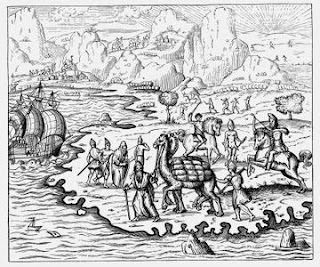In some sense we can say that insurance appears simultaneously with the appearance of human society. We know of two types of economies in human societies: natural or non-monetary economies (using barter and trade with no centralized nor standardized set of financial instruments) and more modern monetary economies (with markets, currency, financial instruments and so on). The former is more primitive and the insurance in such economies entails agreements of mutual aid. If one family's house is destroyed the neighbors are committed to help rebuild. Granaries housed another primitive form of insurance to indemnify against famines. Often informal or formally intrinsic to local religious customs, this type of insurance has survived to the present day in some countries where a modern money economy with its financial instruments is not widespread.
Turning to insurance in the modern sense, early methods of transferring or distributing risk were practiced by Chinese and Babylonian traders as long ago as the 3rd and 2nd millennia BC, respectively. Chinese merchants traveling treacherous river rapids would redistribute their wares across many vessels to limit the loss due to any single vessel's capsizing. The Babylonians developed a system which was recorded in the famous Code of Hammurabi, c. 1750 BC, and practiced by early Mediterranean sailing merchants. If a merchant received a loan to fund his shipment, he would pay the lender an additional sum in exchange for the lender's guarantee to cancel the loan should the shipment be stolen or lost at sea.
A thousand years later, the inhabitants of Rhodes invented the concept of the general average. Merchants whose goods were being shipped together would pay a proportionally divided premium, which would be used to reimburse any merchant whose goods were deliberately jettisoned in order to lighten the ship and save it from total loss.
The ancient Athenian "maritime loan" advanced money for voyages with repayment being cancelled if the ship was lost. In the 4th century BC, rates for the loans differed according to safe or dangerous times of year, implying an intuitive pricing of risk with an effect similar to insurance. The Greeks and Romans introduced the origins of health and life insurance c. 600 BCE when they created guilds called "benevolent societies" which cared for the families of deceased members, as well as paying funeral expenses of members. Guilds in the Middle Ages served a similar purpose. The Talmud deals with several aspects of insuring goods. Before insurance was established in the late 17th century, "friendly societies" existed in England, in which people donated amounts of money to a general sum that could be used for emergencies.
Separate insurance contracts (i.e., insurance policies not bundled with loans or other kinds of contracts) were invented in Genoa in the 14th century, as were insurance pools backed by pledges of landed estates. These new insurance contracts allowed insurance to be separated from investment, a separation of roles that first proved useful in marine insurance. Insurance became far more sophisticated in post-Renaissance Europe, and specialized varieties developed.
When considering your needs for insurance products for your home or business consider contacting Bennett Insurance Group at 623-979-4140
Brought to you by:
Jim Bennett
Bennett Insurance Group
623-979-4140
http://jimbennettinsurance.com
jim@jimbennettinsurance.com


No comments:
Post a Comment